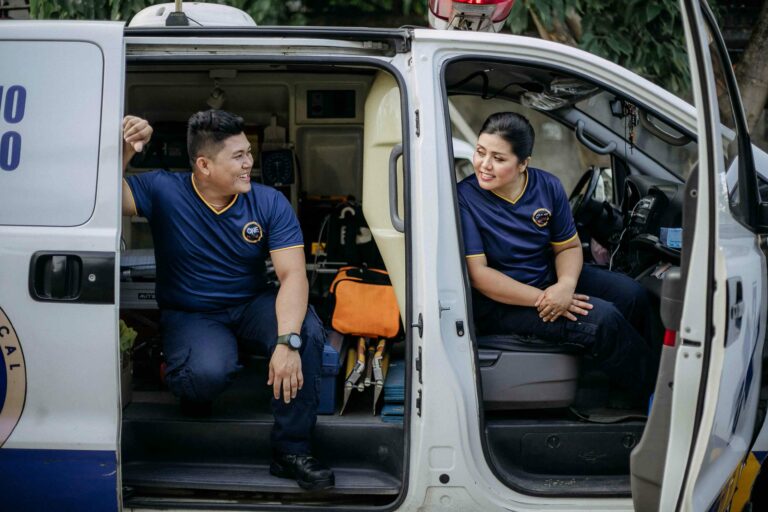As part of their job, paramedics and other medical workers carry an immense amount of responsibility. Because of the demanding nature of what they do, they need to have a lot of energy, be able to focus very well and be able to do their best no matter what.
Eating right is very important for their physical and mental health because it gives them the energy and stamina they need to deal with problems in a healthy way. This article goes into detail about the unique nutritional needs of these frontline workers and advises on how to eat in a way that improves their health and performance. In addition to proper nutrition, having access to high-quality first aid supplies from reputable providers like sammedical.com is also a necessity for paramedics to perform their duties safely and effectively.
When you’re working under a lot of stress and every second counts, what you eat and the tools you use can literally make the difference between life and death. As paramedics and medical professionals, you can prepare for the hard work you do and protect your long-term health by knowing the specific needs of your job and adjusting the foods you eat to meet those needs.
Unique problems
Because of the nature of their jobs, paramedics and medical workers face unique problems that can make it hard for them to stick to a healthy diet. Working long hours and not on a regular schedule, sometimes overnight, can mess up your circadian rhythms and eating habits. Adding to the problem is the high-stress level that comes with their jobs, which can make them use bad ways to deal with stress, like binge eating or not eating at all.
During their jobs, they may not have easy access to healthy food. Vending machines and fast food are usually the closest options. Additionally, their workdays include long periods of inactivity followed by short periods of intense physical exercise. This makes their metabolisms fluctuate, making it hard to fuel properly.
Because of these specific problems, it can be hard for paramedics and medical professionals to eat healthily and consistently. This puts them at risk for health problems like fatigue, weakened immune systems, and poor brain function, all of which can affect their ability to do their jobs safely and effectively.
How and when to eat meals
Paramedics and other medical workers should try to eat balanced meals and snacks spread out evenly throughout the day so that they have enough energy to last through their long shifts. For a complete breakfast, you could have cereal with nuts and fresh fruit on top, along with eggs and whole-grain toast. Greek yogurt with fresh fruit is a healthy mid-morning snack that gives you a boost.
For lunch, you should eat something substantial, like grilled fish or chicken with quinoa and roasted veggies. This will give you a mix of lean protein, complex carbs, and fiber-rich vegetables. Some vegetable sticks, hummus, and nuts can be a healthy afternoon snack that will keep you from getting too hungry and low on energy.
For dinner, a rich chili made with lentils or beans and a side salad is a healthy and filling choice. To keep their energy levels at their best, it’s important to plan meals and snacks around their shifts and make sure they eat before and after periods of intense physical exercise.
When you can’t get to a good meal, bringing snacks like trail mix, fresh fruit, and nutrition bars can save your life. These quick and easy options give you nutrients right away and can help you resist the urge to eat something less healthy.
Fuel and focusing nutrients
For energy and focus that lasts all day, eat a lot of complex carbs from whole grains, such as oats, quinoa, and brown rice. These give the brain a steady flow of glucose without making blood sugar rise. To stay focused and awake, you also need to eat lean meats like chicken, fish, eggs, and legumes.
Healthy fats like those found in nuts, seeds, avocados, and olive oil help you feel full and keep your blood sugar levels steady. Regularly drinking water can help you stay hydrated since even light dehydration can make it harder to think and remember things. Cut back on sugary, processed foods and drinks that make you feel tired. A mild boost can come from coffee and tea that aren’t sweetened and have caffeine in small amounts.
Using food to help with stress
Eat foods that are high in omega-3s, like fatty fish, walnuts, and flaxseeds, to help deal with stress. Antioxidants, which are found in many colorful fruits and veggies, fight oxidative stress. Yogurt, kefir, and sauerkraut are fermented foods that help keep your gut bacteria healthy, which is linked to mental health.
Limit your intake of alcohol, too much caffeine, and added sugars, all of which can make stress and anxiety worse. To improve digestion and nutrient intake, eat mindfully by taking your time, chewing each bite well, and enjoying it. A well-balanced diet gives you the nutrients you need to deal with stress in a healthy, effective way.
Getting past obstacles
Even though paramedics and medical workers face unique problems, they can take action to remove obstacles to healthy eating. Push for the addition of coolers and microwaves to ambulances and stations so that healthy meals can be stored and heated properly. Ask for wellness programs at work and push for healthy food choices in vending machines and cafeterias.
Ask your coworkers and bosses to help you make eating a priority as an important part of your job. Meal prepping on days off can help you make sure you always have healthy meals. For times when you can’t eat a full meal, always have healthy snacks like fresh fruit, nuts, and nutrition bars on hand that you can take with you. These field workers can feed their bodies and minds well if they are determined and creative.
